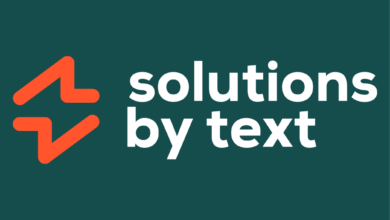Temenos Champions Digital Transformation and Innovation at Its West Africa Digital Leaders Summit

Global banking software provider, Temenos, recently hosted its exclusive West Africa Digital Leaders Summit in Accra, Ghana where it discussed the next wave of banking trends sweeping the region and how the transition to cloud banking and Software-as-a-Service (SaaS) can improve efficiencies across the value chain.
In recent years, there has been a significant shift towards cloud adoption in banking. A recent Economist Impact survey for Temenos revealed that 51% of bankers anticipate that banks will no longer have traditional data centres within five years, favouring the agility and scalability of public cloud solutions. For its part, Temenos projections indicate that by 2027, incumbent banks are set to outspend non-incumbents with three-and-a-half times the spend on the public cloud.
Within this context, Martin Kwame Awagah, President of the Ghana FinTech and Payments Association, presented the keynote address of the event. He discussed the critical role of fintech in helping shape the future of banking in West Africa and helping drive the adoption of cloud and SaaS solutions.
“The collaboration between traditional banks and FinTechs has become a necessity for economic growth. High interest rates, employee lay-offs, lack of a local investor climate, and rigorous compliance requirements have contributed to stunting the potential growth of the sector in the region,” he said. “Advanced technologies like artificial intelligence, the blockchain, big data analytics, cloud computing, and machine learning, amongst others, will play a significant role in driving innovation and financial inclusion across West Africa.”
According to Awagah, early innovators and adopters in the sector will be the winners given how the digital evolution is here to stay.
“There is a need to diversify banking solutions in different segments of the market to attract more investments. However, this ecosystem requires support from policymakers and private stakeholders to increase the pool of local capital,” said Awagah.
Financial service providers like credit unions, savings banks, microfinanciers, community banks, and other non-bank financial institutions are the foundation of sustainable financial inclusion on the continent. Combining community-based banking with modern digital technologies like the cloud and SaaS will be essential to expand the reach of financial services to the unbanked.
Thanks to the launch of digital financial services in more than 80 countries around the world, millions of formerly excluded and underserved poor customers are moving from exclusively cash-based transactions to formal financial services using a mobile phone or other digital technology. However, 1.4 billion adults are still unbanked in 2023. Approximately half of unbanked people included women, poor households in rural areas, or those out of the workforce.
Lee Allcorn, Managing Director for Middle East and Africa at Temenos, believes that SaaS has significant transformative potential in the West African banking industry to help bridge this banking divide.
“Today’s banking sector requires agility and a seamless integration of digital services. At Temenos, we are committed to helping banks serve the evolving needs of their customers through our Software-as-a-Service solutions,” he said.
According to the an Economist Impact research, more than 70% of survey respondents see unlocking value from AI as a key differentiator between winners and losers, while 75% expect generative AI to impact banking. Customer centricity is driving banks to offer more embedded ESG propositions to their customers (73%). Additionally, the focus on lowering their carbon footprint, as well as the increasing use of data-intensive AI, banks are inevitably moving to the public cloud – 51% of respondents agree that banks will no longer own any data centers because they will have moved to public cloud in the next five years.
“This means that business priorities must be built around digital transformation and sustainable growth especially when it comes to financial inclusivity. Driving customer-centricity and an improved customer experience, while also improving the operational efficiency of banks. All this will be guided by analytics and AI that derive faster insights from the available data,” said Allcorn.
The Summit also brought together industry leaders in several panel discussions where they discussed the future of digital banking. There was a focus on how to maximise efficiency through cloud and SaaS banking software, as well as how best to make end-to-end digital banking a reality.
“We made significant investments in 2023 to further enhance our platform and product capabilities, in particular around SaaS and cloud,” said Allcorn. “Our goal is to ensure that our clients are equipped with the most advanced tools to lead in a digitally-driven market and to help African banks not just compete but lead on a global scale.”



